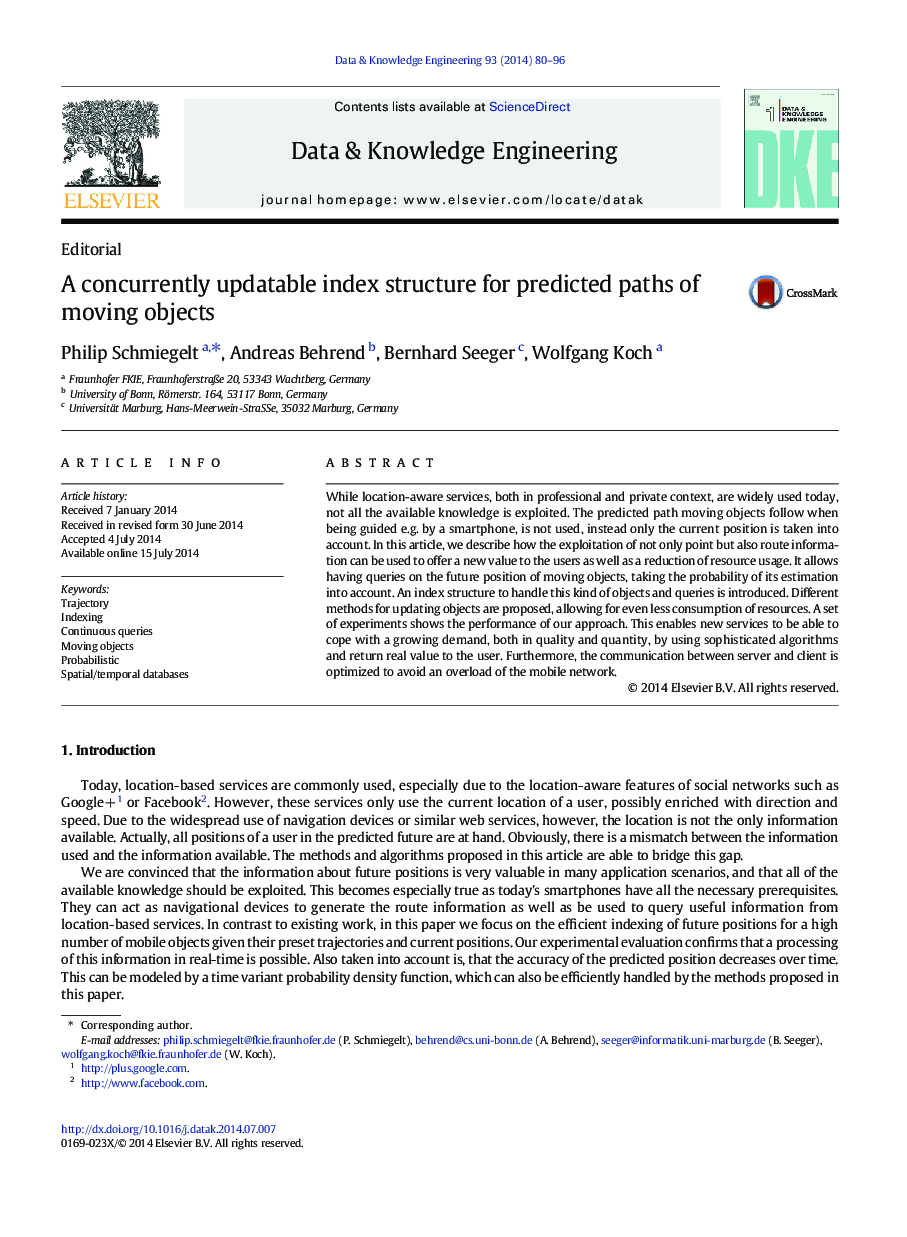| Article ID | Journal | Published Year | Pages | File Type |
|---|---|---|---|---|
| 378759 | Data & Knowledge Engineering | 2014 | 17 Pages |
While location-aware services, both in professional and private context, are widely used today, not all the available knowledge is exploited. The predicted path moving objects follow when being guided e.g. by a smartphone, is not used, instead only the current position is taken into account. In this article, we describe how the exploitation of not only point but also route information can be used to offer a new value to the users as well as a reduction of resource usage. It allows having queries on the future position of moving objects, taking the probability of its estimation into account. An index structure to handle this kind of objects and queries is introduced. Different methods for updating objects are proposed, allowing for even less consumption of resources. A set of experiments shows the performance of our approach. This enables new services to be able to cope with a growing demand, both in quality and quantity, by using sophisticated algorithms and return real value to the user. Furthermore, the communication between server and client is optimized to avoid an overload of the mobile network.
